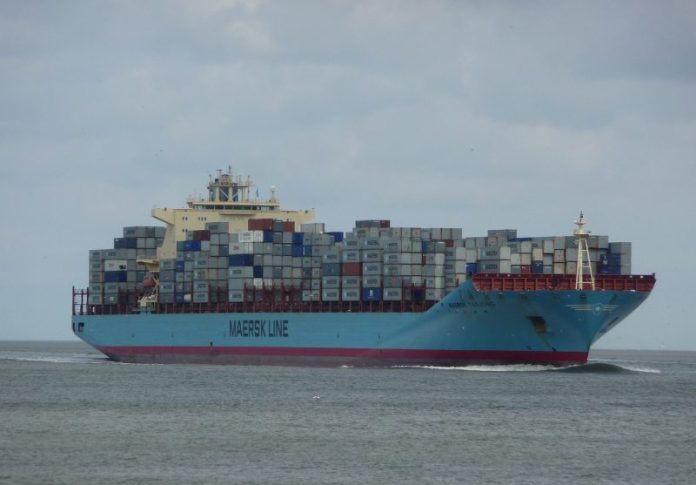
-
All Maersk vessels due to transit the Red Sea/Gulf of Aden will be diverted south around the Cape of Good Hope for the foreseeable future
-
To recover costs, Maersk also announced a transit disruption surcharge on bookings subject to diversion
-
Hapag-Lloyd will introduce a shuttle service connecting the Red Sea market via Jeddah in Saudi Arabia
-
The service will allow it to connect the Red Sea market with Europe, North America, and Latin America while it continues to avoid the Red Sea route
All Maersk vessels due to transit the Red Sea/Gulf of Aden will be diverted south around the Cape of Good Hope for the foreseeable future while Hapag-Lloyd will introduce a shuttle service connecting the Red Sea market via Jeddah in Saudi Arabia in response to security risks in the Red Sea.
“The situation is constantly evolving and remains highly volatile, and all available intelligence at hand confirms that the security risk continues to be at a significantly elevated level. We have therefore decided that all Maersk vessels due to transit the Red Sea / Gulf of Aden will be diverted south around the Cape of Good Hope for the foreseeable future,” Maersk said in a January 5 advisory.
“By suspending voyages through the Red Sea / Gulf of Aden, we hope to bring our customers more consistency and predictability despite the associated delays that come with the re-routing.
“While we continue to hope for a sustainable resolution in the near-future and do all we can to contribute towards it, we do encourage customers to prepare for complications in the area to persist and for there to be significant disruption to the global network,” it added.
The Danish line also earlier announced surcharges on bookings subject to diversion.
Maersk explained diverting vessels around the Cape of Good Hope to mitigate ongoing risks of sailing through the Red Sea/Gulf of Aden “is a necessary step in the interest of safety, but it has ultimately brought about increased costs for carriers.”
As such, Maersk said it is invoking Clause 20(a) of the Terms for Carriage and Clause 22(a) of the House Bill of Lading (whichever is appropriate to the relevant carriage) in order to recover these costs.
The additional charges are effective immediately until further notice and will apply to bookings from Far East Asia that are subject to diversion, as well as bookings on various trades such as the Middle East/Indian subcontinent, Oceania, Europe, North America, West Coast South America, and East Coast South America that are subject to diversion.
This includes shipments already “on the water” that have been or will be diverted. It will be presented as transit disruption surcharge or TDS on customer invoices.
In addition, due to severe operational disruption, Maersk is announcing a peak season surcharge (Far East Asia to West Africa) and an emergency contingency surcharge (from/to Brazil) applicable from January 1, 2024, on all existing and new contracts starting based on market specific price calculation date which in most markets is estimated departure date or gate in of last container on the shipment (subject to any required regulatory approvals and notice periods).
“Our teams will continue to evaluate the impact of the situation and hope to withdraw surcharges as soon as operationally feasible, however please note that they may also increase depending on the circumstances,” Maersk noted.
Hapag-Lloyd shuttle service
Meanwhile, in an advisory dated January 4, Hapag-Lloyd said the shuttle service will allow it to connect the Red Sea market with Europe, North America, and Latin America while it continues to avoid the Red Sea route for the safety of its crew and cargo.
The shuttle service’s rotation will be Tanger, Morrocco – Damietta, Egypt – Jeddah, SA – Damietta, – Tanger.
A feeder service has been arranged whereby Aqaba, Jordan and Port Sudan are routed via Jeddah.
Hapag-Lloyd said they plan to maintain a 10-day frequency for this service.
“We understand that this doesn’t cover all Red Sea cargo, so we will continue to provide updates as we come up with more solutions,” the shipping line noted.
Since late last year, Houthi militant rebels have attacked commercial vessels plying the Red Sea with the goal of ending Israel’s offensive in the Gaza Strip triggered by the October 7 attack in southern Israel of Palestinian militant group Hamas.
The United Nations Security Council has called for a stop to the Red Sea attacks in its first open meeting on January 3.
UN Assistant Secretary-General Khaled Khiari said “no cause or grievance” justifies the continuing Houthi attacks against freedom of navigation in the Red Sea.
He said all incidents originating in Houthi-controlled areas “must stop” and encouraged “all concerned parties” in the wider region to avoid any further escalation and de-escalate tensions and threats.
Around 18 shipping companies have rerouted their vessels around Africa’s southern Cape of Good Hope to avoid the risk of being attacked, according to International Maritime Organization Secretary-General Arsenio Dominguez told the Security Council.
The World Shipping Council, the International Chamber of Shipping and Baltic and International Maritime Council also called for an immediate stop to the Red Sea attacks.
Operation Prosperity Guardian, a coalition of nations, including the US, United Kingdom, Bahrain, Canada, France, Italy, Netherlands, Norway, Seychelles and Spain, was established in December to address security challenges in the Red Sea and Gulf of Aden.




